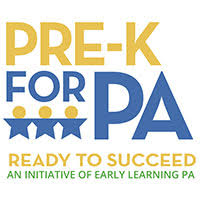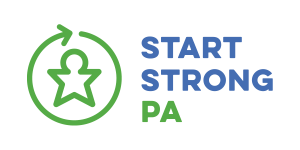Ensure each child can participate in affordable and accessible high-quality early care and education, including infant and toddler child care and pre-kindergarten education. The rapid brain growth during the first few years of life underscores the need to build an early, solid foundation for future success in school, relationships and life. A coordinated early care and education system is a vital component of the economy, allowing parents to work while knowing their children are receiving high-quality care and education.
Early Care and Education Policy Goals
- Increase the number of children enrolled in publicly funded, high-quality pre-k.
- Increase investments for publicly funded, high-quality pre-k so at least 60 percent of eligible 3- and 4-year-olds can voluntarily participate.
- Monitor providers eligible in Pre-K Counts (PKC) and the Head Start Supplemental Assistance Program (HSSAP) so high-quality pre-k providers can participate in publicly funded programs and preserve the mixed pre-k service delivery system.
- Ensure the availability of a high-quality workforce by reinforcing the need for a pre-k through 4th grade teaching certification and addressing compensation parity for pre-k and kindergarten teachers.
- Monitor the impacts of the state PKC and HSSAP programs to ensure intended positive results.
- Increase the number of Child Care Works eligible children in high-quality child care programs, specifically infants and toddlers.
- Support policies and funding for current Keystone STAR 3 and 4 providers to maintain high-quality programming and for Keystone STAR 1 and 2 providers to reach high-quality Keystone STARS standards, creating a more financially stable and larger pool of high-quality providers for eligible children in the subsidized child care program.
- Develop a concept to simplify subsidy payment rates and establish a base rate that includes the quality level of child care programs, coupled with increasing contracted slots, to provide more stable payment structures for high-quality infant and toddler care.
- Collect workforce data to analyze compensation disparities within the sector and advocate for professionals to be paid comparable wages to K-12 teachers with the same degrees or credentials.
- Support policies and funding to increase professional development for the child care workforce.
- Research opportunities to strengthen Infant Early Childhood Mental Health (IECMH) through collaboration with early childhood education and health systems, including Early Intervention (EI).
- Identify opportunities to promote the importance of infants’ and toddlers’ social and emotional development and mental health.
- Promote the inclusion of IECMH topics as professional development training for early care and education providers, including child care, EI, and related professionals.
- Investigate opportunities to strengthen the coordination of support and services between mental health providers to reduce the number of suspensions and expulsions from infant and toddler programs, including an analysis of available data and services through the IECMH consultation program.
- Support economic policies that benefit children and their families.
- Promote opportunities to implement a state Earned Income Tax Credit (EITC) to provide working families a path to financial stability.
- Monitor advocacy opportunities to advance a state Paid Family Leave policy so every worker can take time for their health or to care for their child.
Early Care and Education Publications
Pre-K for PA
Pennsylvania Partnerships for Children is a principal partner of the Pre-K for PA campaign. Building on the shared belief that all children should have the opportunity to enter school ready to succeed, a broad coalition of organizations launched the Pre-K for PA campaign in 2014. The campaign makes pre-k a priority issue in the gubernatorial and legislative elections, advocating increased access to high-quality pre-kindergarten for all of Pennsylvania’s 3- and 4-year olds.

To learn more, visit: prekforpa.org.
Start Strong PA
Pennsylvania Partnerships for Children is a partner in the Start Strong PA campaign, which aims to support healthy child development, working families and the economy by increasing access to and affordability of high-quality child care programs for young children.

To learn more, visit: startstrongpa.org.
Be a Voice for Kids
Stay up-to-date about our public policy work in this and other areas by signing up to receive our biweekly e-newsletter, “A Voice for Kids.”
Don’t forget to follow us on Twitter and like our Facebook page!

